Biological aging refers to the progression of changes over the course of an organism's life. At the heart of this process is resilience - the harmonious assembly of biochemical actions designed to maintain an organism's identity, integrity, and autonomy against internal and external disruptions. During early development, the changes are quick, massive, and fixed due to a self-correcting genetic program.
This developmental stage is followed by a period of relative stability, characterized by minimal changes in physical and cognitive functions. During this "middle" period, most individuals remain disease-free, suggesting apparent stability. However, beneath this surface, compensatory and homeostatic mechanisms are constantly at work to preserve biochemical balance and avert functional deterioration.
In the early stages of life, these mechanisms work efficiently, ensuring robust homeostasis. However, their efficacy fades with age, leading to the accumulation of unrepaired damage beyond a functional threshold. The differing ability of these mechanisms to maintain stable homeostasis contributes to the varied aging phenotypes observed even at extreme old age, despite the leveling force of selective mortality.
Two interrelated mechanisms are implicated in physical decline, cognitive decline, and frailty: one induces damage, and the other prevents it. They can operate separately or together, and their interaction could explain why some individuals age faster than others.
These "resilience mechanisms" and "accumulated damages", along with their evaluation methods in humans, are currently active research areas. For instance, "frailty" in older people, often defined as a "reduction of physiological compensation," is primarily measured based on damage, which becomes clinically evident only when compensatory mechanisms are exhausted. Thus, understanding the balance between damage and repair can provide insights into the mechanisms of accelerated aging.
Biological Factors of Aging on the Body
The human body is a marvel of complexity, operating like an intricately orchestrated symphony, with every note - in this case, cells - playing their part. As we age, the composition of this symphony changes, and so does our health. Several key factors contribute to these changes:
Cell Damage
Just as we gain scratches and dings on our cars with time, cells too experience damage as we age. This damage can be due to environmental factors such as UV radiation, toxins, and even normal metabolic processes. As the damage accumulates, cells lose their functionality or die. Though our body has mechanisms for repair and regeneration, these processes also decline with age, leaving us less equipped to deal with cellular damage.
Changes in the Immune System
The immune system acts as our body's defense mechanism, protecting us from infections and diseases. However, with age, the immune system's ability to fight off pathogens weakens – a process known as immunosenescence. As a result, older adults are more susceptible to infections, diseases, and have a harder time recovering from illnesses.
Decline in Hormone Production
Hormones are like the conductors of our body's symphony. They regulate numerous body functions, from growth and metabolism to mood and cognition. With age, the production of several key hormones, like growth hormone, estrogen, and testosterone, decline. This decline impacts various bodily functions, contributing to the ageing process.
Accumulation of Senescent Cells
Senescent cells are the 'zombie' cells of our body. They have lost their ability to function properly but are not dead, hence, they linger in tissues and organs. These cells increase with age and contribute to the ageing process by secreting harmful substances that cause inflammation and damage surrounding healthy cells.
Increased Risk of Chronic Diseases
As the body ages, so does the risk of chronic diseases. A primary reason for this is the gradual wear and tear on the body's systems over the years. For instance, accumulated cell damage can lead to cancers, decreased immunity can result in frequent infections, and hormone imbalance might contribute to diabetes or osteoporosis. Lifestyle choices also play a significant role in the development of chronic diseases.
Decline in Physical Function
With age, most people experience a gradual decrease in physical functioning. This can range from reduced strength and endurance to decreased mobility and flexibility. The reason for this decline is multifaceted, including loss of muscle mass (sarcopenia), joint wear and tear (osteoarthritis), and reduced cardiovascular capacity. Moreover, reduced sensory abilities like vision and hearing can further affect overall physical functioning.
Decline in Cognitive Function
Cognitive ageing is an inevitable process that affects every individual to varying degrees. This process is characterized by a gradual decrease in cognitive abilities such as memory, attention, and problem-solving skills. The accumulation of damage in neurons, reduced hormone levels, and diminished blood flow to the brain are some factors contributing to cognitive decline.
Role of DNA in the Ageing Process
Research shows that DNA is the genetic blueprint that dictates our biological systems' functions. However, it's not just a static storage device. DNA is dynamic and is subject to change over time. These alterations, particularly those that accumulate as we age, have significant implications for our health and lifespan.
DNA Damage and Repair in Ageing
Our DNA is continually subject to damage due to both internal factors like cellular metabolism and external factors such as environmental toxins or ultraviolet radiation. Over time, the number of these DNA damages accumulates, potentially leading to functional impairments in our cells and contributing to the ageing process.
Fortunately, our bodies have intricate systems for repairing DNA damage. But these repair mechanisms themselves are not infallible. As we age, their efficacy can diminish, leading to an increase in accumulated DNA damage and accelerated ageing. In this context, understanding the nature of DNA damage and repair mechanisms provides valuable insights into the ageing process.
DNA Methylation Affects the Ageing Process
DNA methylation is a crucial biochemical process wherein a methyl group is added to the DNA molecule. This process can modify the function of the genes, leading to changes in gene expression. DNA methylation patterns change with age, leading to either hypermethylation (increase in methyl groups) or hypomethylation (decrease in methyl groups).
These changes can significantly affect the ageing process. Hypermethylation in promoter regions of a gene typically leads to the silencing of that gene. On the other hand, hypomethylation often leads to an increase in gene expression. DNA methylation is controlled by DNA methyltransferases (DNMTs), enzymes that regulate the transfer of methyl groups.
Interestingly, DNA methylation patterns can serve as a 'biological clock' to predict our biological age. The age-associated changes in methylation patterns of certain genes are so consistent that they can provide a surprisingly accurate estimate of a person's biological age.
Influence of Lifestyle on Biological Ageing
Biological ageing is not solely dictated by the genetic blueprint inscribed in our DNA. The lifestyle choices we make significantly impact how our bodies age over time. Physical activity, dietary habits, stress management, and environmental exposures – all these lifestyle factors have a profound impact on the ageing process.
Regular physical exercise, for instance, is associated with improved cardiovascular health, stronger immune system, and slower cognitive decline. Similarly, a balanced diet rich in fruits, vegetables, whole grains, lean proteins, and low in processed foods can contribute to longevity and a lower risk of age-related diseases.
On the flip side, lifestyle factors like smoking, excessive alcohol consumption, and chronic stress can accelerate biological ageing. For example, smoking is known to cause DNA damage and increase oxidative stress, contributing to premature ageing.
It's also important to note that these lifestyle factors can alter our DNA methylation patterns. A healthy lifestyle can promote beneficial methylation patterns, while unhealthy choices can lead to detrimental changes. In essence, our lifestyle choices can "write" on our epigenetic slate, influencing our gene expression and thus our ageing process.
Slowing Down Biological Ageing: Is It Possible?
Recent research seems to suggest that it might be, to an extent. A significant body of evidence shows that lifestyle choices can heavily impact the speed at which we age biologically.
For example, regular physical activity can slow the ageing process by reducing inflammation and oxidative stress. Similarly, a diet rich in antioxidants can combat the cellular damage that contributes to ageing. Moreover, research on caloric restriction - reducing daily calorie intake without malnutrition - has shown promising results in slowing down the ageing process in various organisms.
In addition to lifestyle modifications, scientific advancements are opening up new possibilities. Breakthroughs in genetic manipulation and regenerative medicine are pushing the boundaries of what we previously thought was possible in terms of slowing biological ageing.
Health Supplements can help in your wellness journey by promoting cellular health, enhancing energy, and supporting overall well-being.


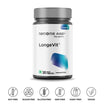
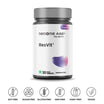


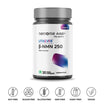
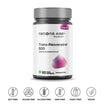
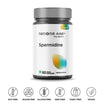
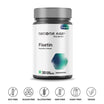

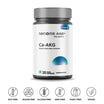
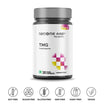
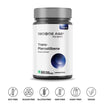
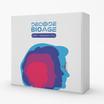

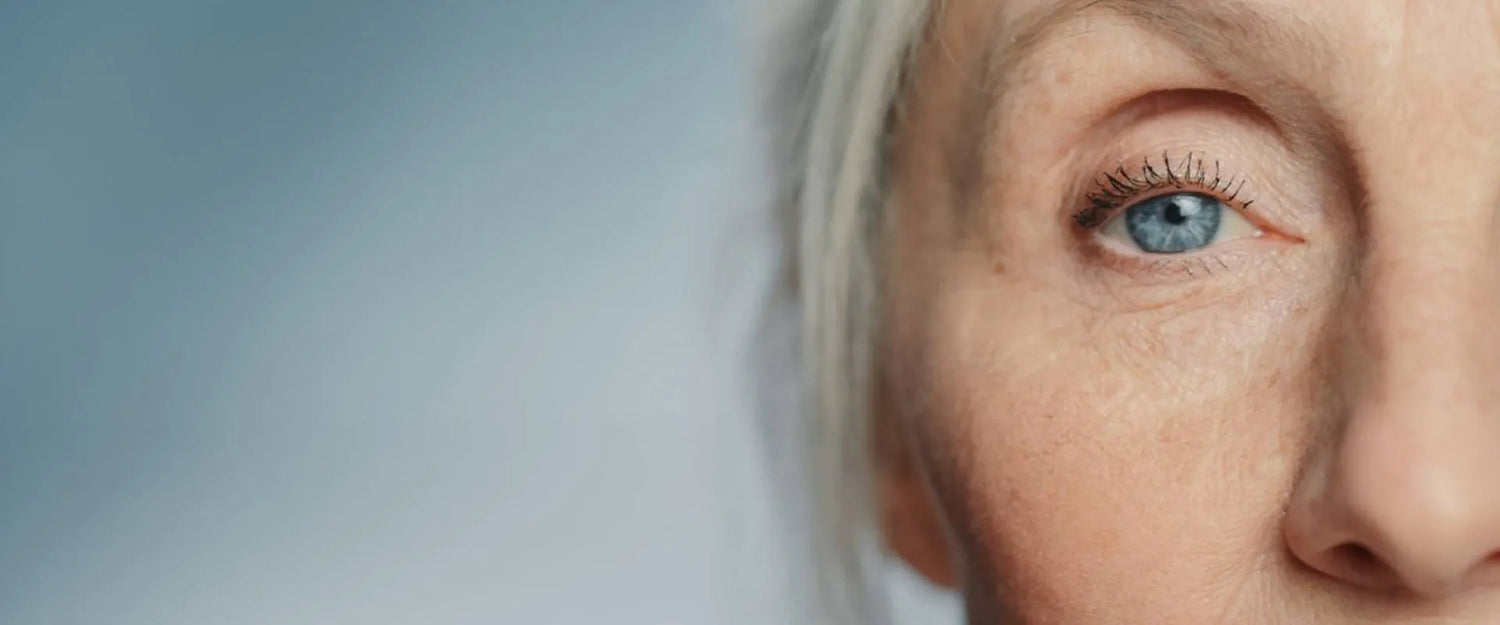


Leave a comment
This site is protected by reCAPTCHA and the Google Privacy Policy and Terms of Service apply.